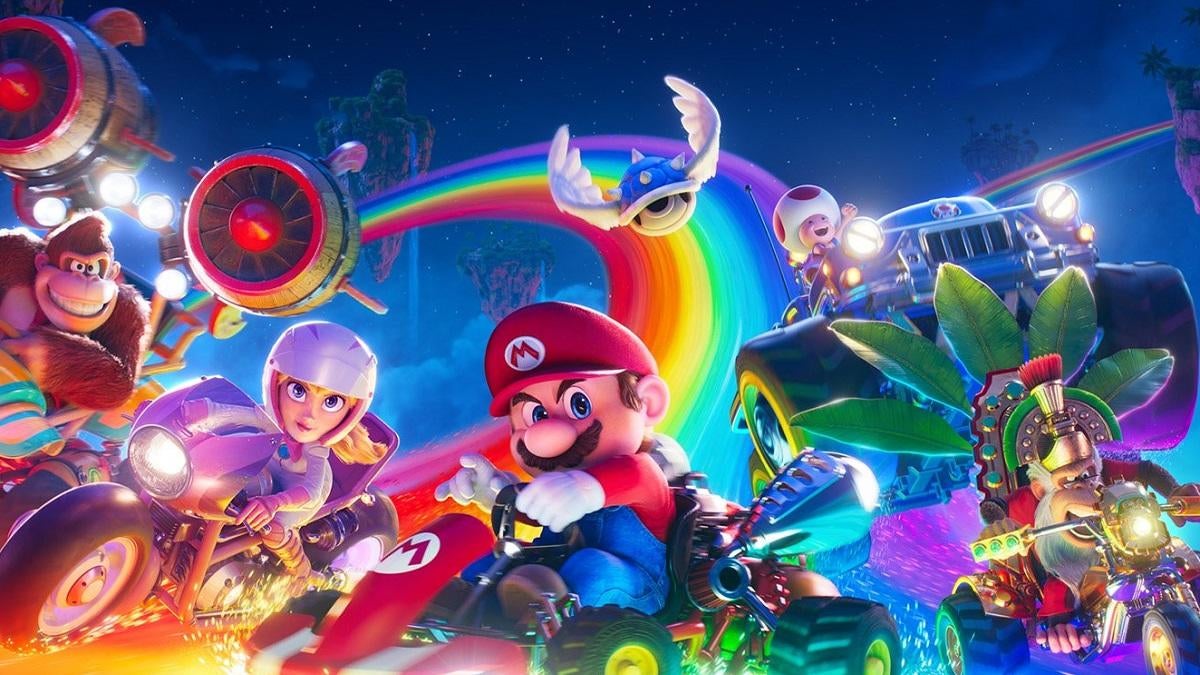Why Is Batman So Popular, Anyway?
While arguably all comic book movies find their way to the larger pop culture conversation, the hype leading up to this week's release of The Batman has felt particularly different. The fervor surrounding the film — which has ranged from conversations about the casting and costume choices, to dissections of the various pieces of marketing, to debates about the merits of its tie-in calzone pizza — have been a small microcosm of the never-ending "Batmania" around DC's Dark Knight. The character has arguably dominated superhero comics (and the various tie-in media around superhero comics) since his original debut in 1939. Even if someone doesn't consider themselves a fan of Batman comics, they have most likely still experienced him in his multiple movie and cartoon reboots, the avalanche of merchandise bearing his symbol, or the catchphrases and iconography that have permeated into our cultural lexicon. Yes, superhero comics have spawned characters that have become globally recognizable and inspired the hearts of many, but (outside of maybe Marvel's Spider-Man) none have even come close to the consistent notoriety and love of Batman. What exactly is it about the Caped Crusader, who could have easily been stuck among the dime-a-dozen forgotten gimmicks created in the Golden Age of comics, that has made him endure as a one-of-a-kind cultural icon?
If there is a "secret sauce" to what makes Batman work, it can probably be traced back to his very first appearances, with Bill Finger and Bob Kane's work in the pages of Detective Comics. After several issues of a well-executed, pulp-inspired detective story, which dotted with appearances from unassuming civilian socialite Bruce Wayne, Detective Comics #33 confirmed that the two were one and the same. It also established exactly what motivated Bruce to become Batman — after his rich parents were gunned down in the street when he was eight years old, he vowed to enact vengeance on the criminal underworld, and then devoted his adolescence to obsessive research to become the best possible crimefighter. While built on a traumatic inciting incident, there's an aspirational emotional core at the center of Bruce's motivation, as he channels his loss of innocence and normalcy (albeit, an incredibly privileged normalcy) to make the world a better place. Sure, a version of that drive is at the heart of many heroes' journeys, but the unique responsibility that Bruce feels is entirely admirable.
Simultaneously, there are so many elements of the Batman gimmick — his cabal of colorful villains, his various love interests, and his nature of working in the shadows — that can be seen as alluring and cool, while still being grounded in societal norms. Outside of the death of his parents, the way Bruce becomes Batman (without superpowers, might I add) can also be seen as attainable to the reader, in a way that the squeaky-clean personas and otherworldly origins of Superman and Spider-Man aren't exactly. The average reader most likely doesn't have access to oodles of generational wealth, years of training and preparation, and an endless supply of gadgets — but they can imagine a world where they do, and picture themselves making decisions similar to (or wildly different from) what Batman does.
At the same time, as much as Batman's very being is rooted in human pain and real-world grittiness, it's also based in a sense of absurdity. Some of this is arguably thanks to aesthetics — no matter how much cool-looking kevlar armor he wears, or how many weapons he carries, he's still a guy deliberately going out in public wearing a cape and a pointy-eared cowl. And while Bruce's mission is rooted in a rich text of trauma and personal perseverance, it's also removed just enough from the consequences of reality, as proved by the seemingly-never-ending debate about why he doesn't just stop being Batman and donate his money to the charities of Gotham instead. Those truths (no matter how contradictory) have arguably added to how ubiquitous Batman has become, allowing for endless amounts of analysis and remixing of his central story, while taking his actions into unprecedented and entertaining places.
You can throw a hypothetical rock and hit half a dozen different Batman titles being published at one time, with that number increasing when you factor in his appearances in team books, or the spinoffs surrounding his sidekicks and villains. Each of these books can vary wildly in concept and tone — at any point in time, there can simultaneously be comics where Batman has G-rated adventures with the Scooby-Doo gang, comics where he fights G.I. Joe's Snake Eyes while stuck in the Fortnite universe, and comics where he shows full-frontal nudity and swears like a poor man's caricature of a sailor. There's an equal amount of variety in his film and television appearances, from the unabashed campiness of the Adam West Batman television series to the painfully grounded realism of the Christian Bale-led film trilogy, and everything in between. Even the animated corner of Batman adaptations showcases that variety, from him having a childlike sleepover with Commissioner Gordon on Teen Titans GO!, to him drawing blood and causing controversy in some of the more adult-oriented animated movies.
These appearances may target different audiences, but they all capture valid shades of who Batman is, without ever counteracting one another. And even with some recurring elements (just ask anyone who is sick of the image of Martha Wayne's necklace of pearls falling apart moments before her death), these stories use the malleability of Batman to capture something about the audience consuming his stories. Whether it be the whimsical and gimmicky post-war comfort of the 60s, the captivating crime drama of the 70s, the bombastic Cold War paranoia of the 80s, the conspiracy thrillers of the 00s, or the character-driven sagas of the present day, Batman and the stories around him are able to grow with the times, and scratch the proverbial itch that audiences didn't even know they had. At the heart of each story has been some sort of distillation of what makes his concept compelling to begin with — he's mysterious but altruistic, capable but flawed, and brilliant but unabashedly cool.
Those core tenets of Batman have remained so strong that they've been able to expand into the larger DC universe, with an entire family of supporting characters who each bring out a different quality in the Dark Knight, and who have equally compelling and scrappy origins that audiences can follow into other stories. There have also been a number of successful stories putting the idea of Batman onto characters who aren't Bruce Wayne — whether it be his first sidekick (Dick Grayson), an alternate version of his father (Flashpoint Batman), a kid in a cyberpunk future (Batman Beyond), a black man in modern America (Jace Fox), or dozens of evil doppelgängers of DC heroes and villains (the major players in the recent Dark Nights: Metal and Dark Nights: Death Metal storylines). It's the kind of myth-like canon that's unlike anything else in modern fiction, and allows someone to be a "fan" of the character at any level of investment, whether they're consuming their first Batman comic or movie, or has voraciously kept up with any available installments about the character. Both types of fans are able to walk away with some level of understanding of who he is — and their takeaway is probably correct on some level.
It's safe to say that Batman is an enigma of a character, both in the decades of text that make up his story, and in the fact that that text has become so culturally popular. From his inception, Batman has represented a dichotomy that had been missing from superhero comics — the determined, capable, and self-sacrificing noir hero everyone imagines they could be, mixed with the profound darkness and difficulty that everyone has probably felt. As his comics and their various adaptations have ranged from goofy to deathly serious, they have also served as a channel for our own cultural evolution, while also doubling as stories that are entertaining for fans of all ages. Sure, the world of superhero fiction has sparkled with iconic characters and concepts, but Batman has become something else entirely — a fascinating, flawed, and endlessly entertaining reflection of modern culture.
The Batman will be released exclusively in theaters on March 4th.




